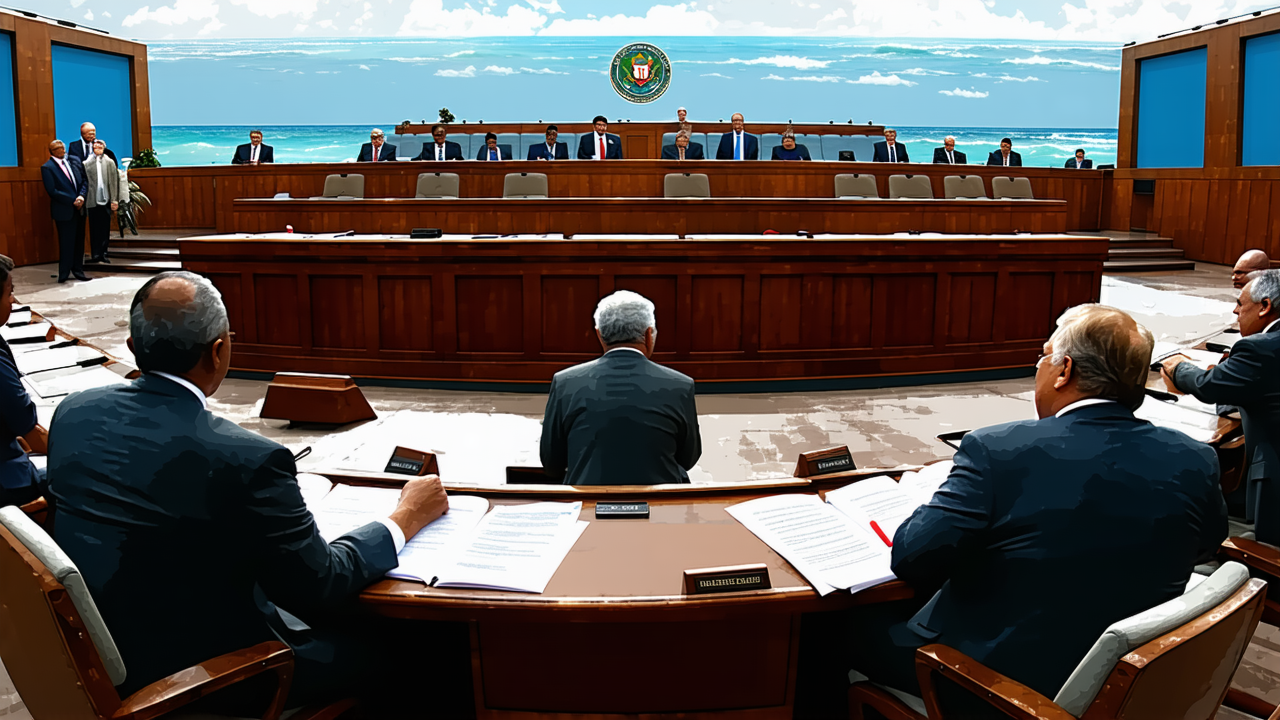Pacific Islands Push for Climate Justice as International Court of Justice Set to Deliver Landmark Ruling
Pacific Islands Push for Climate Justice as International Court of Justice Set to Deliver Landmark Ruling
The world is poised for a defining moment in the fight against climate change as the International Court of Justice (ICJ) prepares to issue a landmark advisory opinion on the legal obligations of nations to address the climate crisis and the responsibilities of major polluters.
The ICJ, located in The Hague at the iconic Peace Palace, has been tasked with answering two pivotal questions: What obligations do states have under international law to protect the Earth’s climate from polluting greenhouse gas emissions? And, what are the legal consequences for states that “by their acts and omissions have caused significant harm to the climate system and other parts of the environment?”
This ruling is expected to be one of the most significant in the history of international law, with far-reaching implications for both the legal framework and the global response to climate change. It could reshape how nations approach climate policy, litigation, and international cooperation.
For the Pacific Islands, whose very existence is threatened by rising sea levels and increasingly frequent climate disasters, this is a battle for survival. Vanuatu’s representative, Ralph Regenvanu, described the case as one with “reverberations across generations,” emphasizing the existential threat faced by small island states.
“This may well be the most consequential case in the history of humanity,” said Regenvanu, opening the two-week hearings in December. “The outcome of these proceedings will determine the fate of nations like mine and the future of our planet.”
However, the path to justice is not without obstacles. Major polluters, including the United States and India, have argued that existing international frameworks such as the UN Framework Convention on Climate Change (UNFCCC) are sufficient and that the court should not create additional legal obligations.
“The court should avoid the creation of any new or additional obligations beyond those already existing under the climate change regime,” said India’s representative, Luther Rangreji. This stance has been met with fierce opposition from vulnerable nations, who argue that current agreements are inadequate to address the scale of the crisis.
“As seas rise faster than predicted, these states must stop. This court must not permit them to condemn our lands and our people to watery graves,” said John Silk from the Marshall Islands.
Despite these challenges, climate-vulnerable nations and advocacy groups remain hopeful that the ICJ’s advisory opinion will provide a legal compass for the world to course correct. Vishal Prasad, director of the Pacific Islands Students Fighting Climate Change, said the ruling could “inspire more ambitious national policies and guide states toward decisions that uphold their legal duties to protect both people and planet.”
While the advisory opinion is not legally binding, its influence could be profound, shaping national legislation, court cases, and international climate negotiations. The outcome of this landmark ruling could mark a turning point in the global fight against climate change.
As the world waits for the ICJ’s decision, one thing is clear: the stakes have never been higher for the future of our planet and the survival of the most vulnerable among us.
